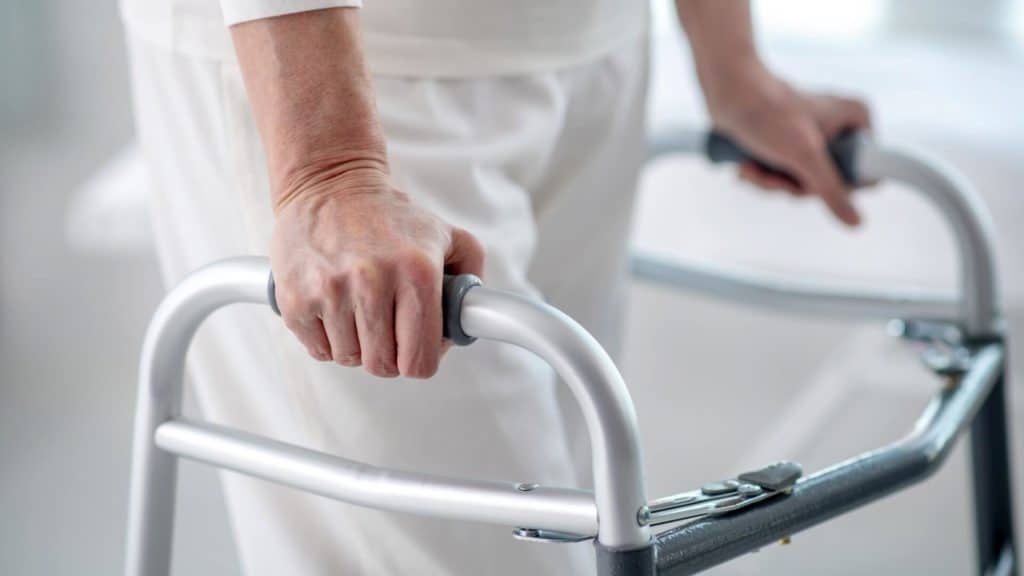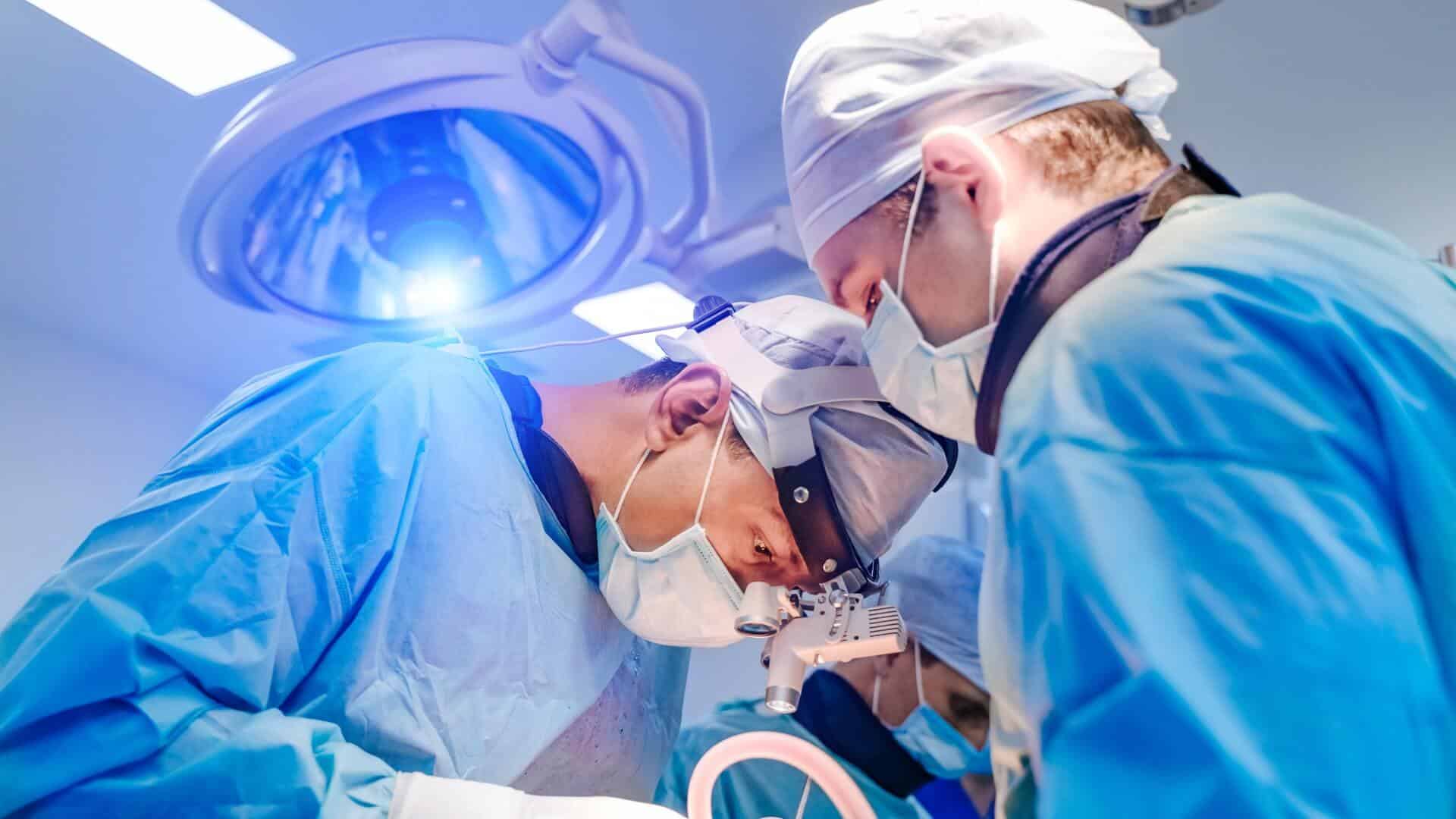Neurosurgery is a type of surgery performed on the nervous system, which is made up of the brain, spinal cord and nerves. People undergo neurosurgery for a variety of reasons, such as the removal of brain tumors and the treatment of chronic back pain caused by herniated disks and other medical problems. If you're scheduled for neurosurgery in the near future, here are answers to eight frequently asked questions to help you prepare.
1. Do I have to have any tests before undergoing neurosurgery?

Your doctor may ask you to have a preoperative history and physical a few weeks before your scheduled surgery. The purpose of this physical is to determine if you have a higher risk of complications during and after the procedure. If you have additional risk factors, your care team will come up with a plan for addressing them. For example, if you have asthma, your doctor may recommend taking steroids before the surgery to reduce the risk of respiratory complications.
Stress Testing
If you have a history of heart problems, including unstable angina or a recent heart attack, your doctor may also recommend that you undergo cardiac stress testing before the surgery. During a stress test, you walk on a treadmill while hooked up to a blood pressure monitor and EKG machine. If you can't walk on a treadmill, you may have to take medication to mimic the effects of exercise on your heart. Having this test helps determine if you have coronary artery disease or an abnormal heart rhythm, both of which can increase the risk of complications during surgery.
Laboratory Testing
You may also need to have several laboratory tests prior to your surgery. In healthy patients under the age of 40, the American Academy of Family Physicians recommends a hemoglobin check and a urine pregnancy screen for women. A low hemoglobin level may indicate an increased risk of needing a blood transfusion during surgery, so this test helps your care team determine if they need to have additional units of blood on hand.
If you're over the age of 40, your doctor may also ask you to have your glucose (blood sugar) checked a few weeks before the surgery. You may also need the following lab tests:
- Complete blood count: This test helps determine if you have a normal number of red blood cells, white blood cells and platelets in your bloodstream.
- Prothrombin time/partial thromboplastin time: These tests are used to diagnose disorders that affect your blood's ability to clot normally.
- Comprehensive metabolic panel: Your doctor may order a comprehensive metabolic panel to determine if you have an electrolyte imbalance, kidney disease or problems with your liver.
2. How do I prepare for neurosurgery?

The preparation required for neurosurgery depends on the type of surgery you're having. Generally, you'll need to stop eating and drinking several hours before the surgery. Some surgeons ask their patients not to consume anything after midnight the night before the procedure. This is to prevent aspiration, which is when solids or liquids enter the windpipe and lungs. In severe cases, aspiration can cause respiratory failure, making it important to follow your doctor's instructions regarding eating and drinking.
Your doctor may also advise you to remove any nail polish before you come to the hospital. During surgery, a team of medical professionals monitors your vital signs and watches you closely for any signs of distress. To measure your oxygen concentration, they'll use a small device called a pulse oximeter, which is typically placed over one of your fingers. If you're wearing nail polish, the pulse oximeter may not produce an accurate reading. You should also take off your acrylic nails before you check into the hospital for your surgery.
If you wear dentures, bring your denture cup with you to the hospital. You may be asked to remove them before surgery so that they're not damaged by the endotracheal tube used to help you breathe while under anesthesia. You should also avoid wearing contact lenses and jewelry. Make sure your doctor knows about any medications you're taking, as you may have to stop taking them several days before the surgery to help prevent complications. For example, you may be asked to stop taking aspirin or other blood thinners anywhere from five to 10 days before the procedure.
3. What happens when I check into the hospital or surgery center?

When you arrive at the hospital or surgery center, you'll be asked to sign a consent form and ensure your contact information is up to date. You may also have to show your ID or provide your insurance card to the registration clerk. What happens when you arrive in the pre-operative area depends on the procedure you're having. If you're having brain surgery, for example, a technician may shave some of the hair on your head.
You can also expect one of the nurses to start an intravenous line (IV) so you can receive fluid and medications during and after the surgery. If you'll be going under general anesthesia, you may also meet with an anesthesiologist or certified nurse anesthetist to discuss your medical history and give them time to make an appropriate plan for your care.
4. How long does a neurosurgical procedure take?

It depends on what type of procedure you're having. Many surgeries take only a few hours, but the most complex procedures can take 15 hours or more. It may take a little longer to perform your surgery if you need a blood transfusion or if your surgeon has to change their approach once the procedure begins.
5. What can I expect during my hospital stay?

When the surgery is over, you may be in pain, but your care team will give you medicine to make you feel more comfortable. Depending on what type of surgery you had, you may work with a physical therapist, occupational therapist or speech therapist. Nurses and other medical professionals will check on you throughout the day and night to make sure that your surgical incision is clean, check your vital signs, and ask you about any side effects you're experiencing. You should be able to go home within a few days, but it may take longer to be discharged if you have any complications.
6. Will I need home health services after my surgery?

It depends on the type of surgery you had and how long you were in the hospital. You may need to have a home health nurse come in to change your bandages, monitor your vital signs and perform other types of nursing care. You may also need to receive physical therapy at home until you're well enough to travel to a therapist's office.
7. How long does it take to recover from a neurosurgical procedure?

Again, your recovery time depends on what type of surgery you had. For example, it may take several months to recover from surgery on the brain. If you had surgery on your spine, it may take four to eight weeks to recover. During this time, you'll have to follow your doctor's advice regarding activity restrictions to avoid injuring yourself while you're still healing.
8. What are my options for pain management?

In the hospital, you'll receive IV pain medications and/or local anesthetics to ease the pain that occurs immediately after your surgery. At some point, your doctor will likely recommend transitioning to oral pain medications with a lower potential for addiction. When you go home, your doctor may recommend taking nonsteroidal anti-inflammatory drugs.NorthEast Spine and Sports Medicine has 11 locations throughout New Jersey, giving local residents access to expert care. In addition to neurosurgery and orthopedic care, we offer a wide variety of services to help reduce pain and improve your overall quality of life. To schedule an appointment or learn more about our services, call (732) 653-1000.


